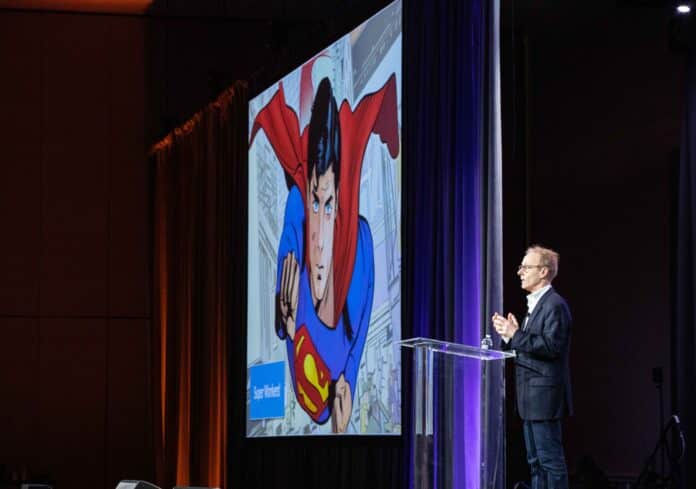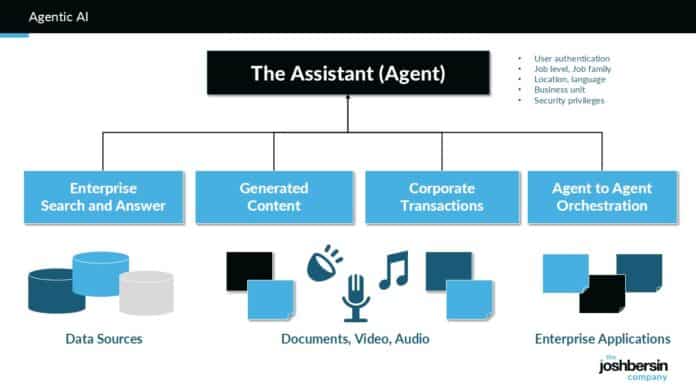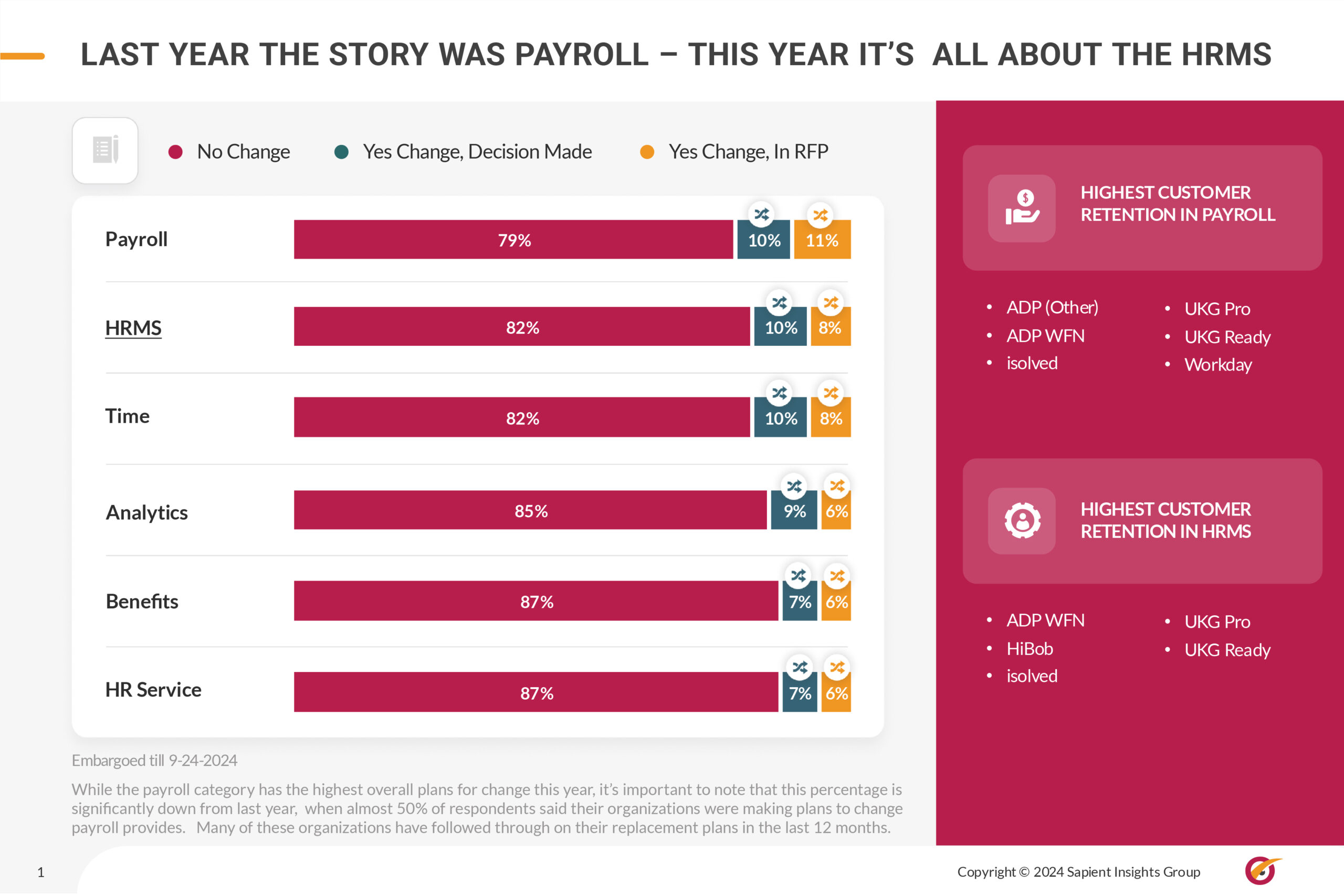Josh Bersin’s top AI headline for 2025? It’s all about the agents
- HRM Asia Newsroom

Industry analyst Josh Bersin has been working in the HR tech industry for two decades—during which time there has been tremendous disruption.
“But I have never seen this market change so fast in such as positive way,” Bersin told the audience at Wednesday morning’s keynote address at the HR Tech Conference in Las Vegas.
The forces for change are vast: dropping birthrates mean organisations will be operating with fewer people, an “activated” workforce that has heightened the focus on employee experience—but perhaps none more than the rapid evolution of AI.
“AI will be one of the most important technologies to address the issues of the labour market, employee experience, employee reskilling—all the things we’re seeing right now in business,” Bersin said. He told the conference crowd that the many AI-infused systems they are seeing on the floor of the show’s Expo Hall are not just the “fancy tools” AI products used to be.
AI is meaningfully “touching” every area of HR: recruiting, employee self-service, learning and development, performance management, career mobility, rewards, and more.
“They’re not just cool things that are fun to buy and look at,” he said. “[AI tools] are business imperatives that we’re going to have to adopt.”
Four ways AI will transform HR tech in 2025
The development of AI is among the factors that have led to a proliferation in the HR tech market: In just the last three years, the average number of employee-facing apps a large organisation deploys has jumped 57%–to 93%. Increasingly, employers will need to “stitch together” tools in a systemic way, leveraging AI to deliver a more frictionless employee experience while driving business outcomes.
Bersin offered a number of predictions about how AI—once “permeating” the HR tech stack and now “dominating” it—will shape the HR tech landscape in the coming year.
Agentic AI
As AI-powered chatbots were introduced into HR systems in the last few years, they gave employees new access to information—while reducing the repetitive, distracting work from the shoulders of HR professionals. Now, we are seeing the market progress towards AI agents, Bersin.

For instance, whereas an HR chatbot of the past may have been able to answer an employee’s question about how much vacation time they have, an AI agent can put that information into action—walking them through putting in for time off, or booking flights or hotels.
Agents will be introduced and integrated across HR systems, Bersin predicted.
“It’s a huge transition in the market,” he said. “All AI systems are going to start talking to each other, and you’ll be able to conduct transitions in core systems and across systems.”
The emergence of agentic AI is already making headlines: Workday and Oracle are among the HCM organisations that recently unveiled new agentic AI capabilities.
“This is going to be a really interesting war of agents,” Bersin said.
A consolidated employee experience
Bersin cited research that found 87% of HR managers planned to increase their HR tech budget this year. This number one priority? Employee experience.
Employees today are “activated”—they know they have options in the job market, and they are empowered to voice their needs. And that means that, when it comes to tech, “they simply will not use the stuff they do not like,” Bersin said.
Agentic AI will be a game-changer for elevating employees’ tech experience, he predicted.
“All of the experience stuff is going to be done with an agent. But we don’t want 20 agents,” he said. “The next big initiative is going to be how to decide where to use Galileo, Microsoft Copilot, the copilots from Workday or Eightfold—how will those all fit together?”
Over time, he said, many of these agents will learn to “talk to one another under the covers”, alleviating some of those integration decisions from HR professionals.
“It’s a very hot space because the employee experience problem is a significant major, major problem,” Bersin said.
A revolution for L&D
AI is also primed to disrupt learning and development—a massive, US$320 billion market, with hundreds of content providers.
“AI is going to upset the whole apple cart,” Bersin said.
How? In the last decade, since the introduction of the learning experience platform, there have not been a lot of learning tools hitting the market.
“Now we have AI, and we have just unleashed a whole new way of thinking about this,” Bersin said. A market evolution is happening “very, very fast”, Bersin said—and in the coming year, he predicted legacy systems will integrate with agents and assistants.
“These things are going to come together, and we’ll see the LMS market reinvented by new AI-driven tools,” he said.
Content providers will be particularly disrupted and need to “rethink” how they deliver content, he advised.
At the same time, AI capabilities are transforming coaching, and the market is likely to see an influx of intelligent AI coaches in the coming months.
“They’re immature right now but there’s no question, based on my experience with AI, that is going to happen—and we’re going to have a lot of very cool AI coaching interfaces,” he said.
The human-tech partnership in TA
AI-powered talent acquisition tools are cropping up quickly—and just as quickly getting acquired by large providers, Bersin said.
However, the “big story [in TA] is bigger than AI,” he said.
“The fact that talent acquisition is one of the most important areas of HR is because it’s perhaps the most important thing [HR does] in your organisation,” he said. “If you don’t hire the right people, all the other stuff is so much harder to do.”
As much as AI and automation will be used to shrink hiring cycle times, for instance, Bersin said, the need for “the human aspects remains”.
The recruiter, he said, will continue to be one of the “most important roles” in HR—and one whose work will shift.
Strategically minded organisations are transforming their talent acquisition units from operating like “the Amazon fulfilment centre for talent to being much more of a strategic, forward-facing function”. As tech takes over some of the TA processes, it will empower TA professionals to ask those questions that only humans can: Why are we hiring this person? Is an internal candidate a better fit? How can we redesign work to reduce the need for this person? Should we reskill people?
It is not a transformation that is yet widespread: Recent Josh Bersin Co research found that 70% of TA leaders said these were discussions they were not yet leading—they are still “just cranking out jobs and getting people in the door as fast as possible.”
“We’re going to see a much more strategic role for talent acquisition going forward,” he said.
About the Author: Jen Colletta is Managing Editor of Human Resource Executive, where this article was first published.
For more news and analysis on the latest HR and workforce trends in Asia, subscribe to HRM Asia and be part of the region’s largest HR community!






